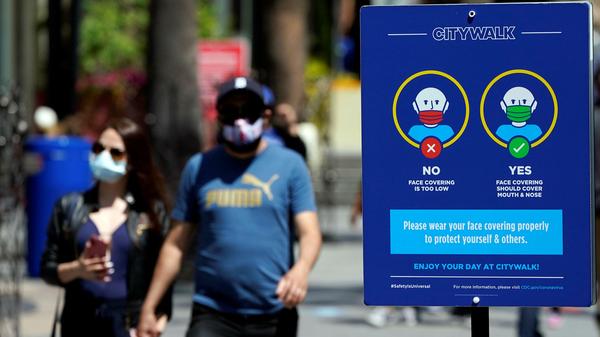An Israeli hospital said preliminary research shows a fourth dose of the coronavirus vaccine does boost antibodies, but it's not enough to stop the spread of omicron. Yet medical experts and public officials continue to urge people to get vaccinated amid an omicron-driven surge.
Sheba Hospital last month began administering a fourth vaccine to more than 270 medical workers — 154 who received a Pfizer vaccine and 120 others who received Moderna’s. All had previously been vaccinated three times with the Pfizer vaccine.
The clinical trial found that both groups showed increases in antibodies “slightly higher” than following the third vaccine last year. But it said the increased antibodies did not prevent the spread of omicron. Meanwhile, Moderna and Pfizer are working on omicron-specific vaccine formulas.
Despite these findings, top Boston doctors continued to urge people to get vaccinated and, when eligible, boosted, during NBC10 Boston's weekly "COVID Q&A" series Tuesday. The doctors said expectations of COVID-19 vaccines need to change, waiting for an omicron-specific vaccine may not be timely and vaccine technology should continue to be developed.
More from this series
Boston Doctors: COVID-19 Hospitalizations Cut in Half By New Reporting Guidelines
Is the Omicron Surge Almost Over in Massachusetts?
Expectations
The COVID-19 vaccines that are currently available in the U.S. are effective when it comes to preventing severe hospitalization and death, Boston Medical Center's Dr. Sabrina Assoumou emphasized. But because immunity wanes over time, people need to change their expectations of COVID-19 vaccines, according to Assoumou and Dr. Daniel Kuritzkes, chief of infectious disease at Brigham and Women's Hospital.

"What I want to emphasize and I hope, if there's one message that people get away from our conversation today, it's that our vaccines are holding up," Assoumou said. "We're asking these vaccines to really do something that we don't really ask other vaccines to do."
For instance, the flu vaccine, she noted, does not prevent against infection, it protects people against hospitalization. Such is the case with COVID-19 vaccines.
"We're going to have to really think about, 'What is our goal with these vaccines?' And our goal should be to prevent hospitalization and death because I think that that's really what these vaccines can do," Assoumou said. "We're going to have to readjust our expectations with these vaccines."
In situations like the current omicron-driven winter surge, she said people will have to utilize other measures like wearing masks to decrease community transmission.
"We really need to calibrate, or recalibrate, what our expectations are from the vaccines," Kuritzkes said. "The vaccines really are to prevent severe disease and death. They may not prevent mild symptomatic disease, which we should be less concerned about."
When asked about the change in narrative around COVID-19 vaccines from the start of the pandemic, the doctors acknowledged that they were wrong.
"We were wrong," said Dr. Shira Doron, hospital epidemiologist at Tufts Medical Center. "We need to be transparent about that too. We did not know if the vaccines would be variant proof. And they weren't but they are still an unbelievably amazing piece of technology because they prevent hospitalization and death and that is what's most important."
"Any of us who thought we could predict what this epidemic would do were wrong from the beginning. We have to be humble," Assoumou said. "We're building the plane as we're flying it."
Kuritzkes noted that while the Israeli study showed that a fourth booster shot didn't prevent the spread of omicron, "the third shot -- a booster -- really does help." Additionally, waiting for an omicron-specific vaccine may not be timely.
"We have no idea, realistically, when an omicron-specific booster might be available, and by the time it's available it may no longer be relevant because omicron may no longer be the important variant," Kuritzkes said. "So there isn't a good reason to wait for something that may or may not come along and may be outdated by the time it comes along. If you're scheduled for a booster you should get it now."
Doron spoke to the need for developed vaccine technology and not just relying on mRNA vaccines.
"I think really the next stage needs to be looking at alternative vaccine technology that may have either more capacity to be sterilizing, so perhaps a nasal vaccine would really knock out the ability of the virus to attach to the respiratory mucosa and cause infection," she said. "We need a more durable approach that would give us that more long-lasting immunity without the need to boost as often."
The Associated Press contributed to this report.




